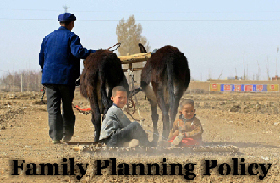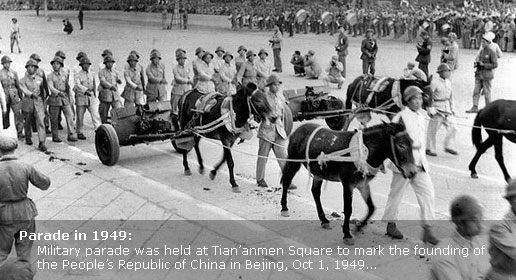Human Rights Progress
Special coverage: China Family Planning Policy
By uking
Updated: 2009-09-02 11:09
From the editor:
One of the most popular misunderstandings of China in the Western countries is the family planning policy introduced in 1979, which has been frequently and wrongly perceived as one-child policy and criticized by some international organizations as human rights violation. The rich content of one-child policy then has been simplified as every family can only have one child no matter what ethnic groups the family belongs to or what particular health situations of the family are. After 30 years of practice, there's also a growing voice in China that questions the necessity of keeping this policy. In big cities like Shanghai, the local government encouraged couples who meet certain criteria to have the second child. As Chinese are celebrating the 60th anniversary of the founding of People’s Republic of China, China Daily Website provides this special coverage of China Family Planning Policy to show the achievements, failures and the dilemmas of the Chinese government in managing a country with the largest population in the world.

Background
From the early 1970s, the Chinese government became increasingly aware that the over-rapid growth of population was unfavorable to economic and social development and decided to energetically carry out family planning in both urban and rural areas and integrated the plan for population development into the plan of national economic and social development.
At the end of the 1970s, then China's leader Deng Xiaoping pointed
|
||||
Main Content
The main contents of the current family planning policy in China are: Advocating delayed marriage and delayed child bearing, fewer and healthier births; and advocating one child for one couple. Some rural couples with actual difficulties are allowed to give birth to a second child a few years after the birth of their first child. There are practical differences in the family planning policy between urban and rural areas, and between the Han and the
|
||||
The state has imposed no specific requirements on Tibet in family planning. In 1985, the People's Government of the Tibet Autonomous Region, in view of the actual population growth there, began to advocate family planning among Tibetan cadres, workers and staff, encouraging each couple to voluntarily space two births at reasonable intervals. Among the broad masses of farmers and herdsmen, the government has mainly educated them in child-bearing knowledge, advocated healthier birth and child-rearing practices, improved health care for women and children, and provided contraceptives and birth control technical services to those who volunteer to practise birth control. No policy restrictions have ever been imposed on the number of births in the agricultural and pastoral areas.
The population in China's Tibet Autonomous Region has grown rapidly over the past decades and the number of Tibetans makes up more than 90 percent of the regional population. Tibet's population increased to 2.87 million in 2008 from 1 million in the 1950s.






